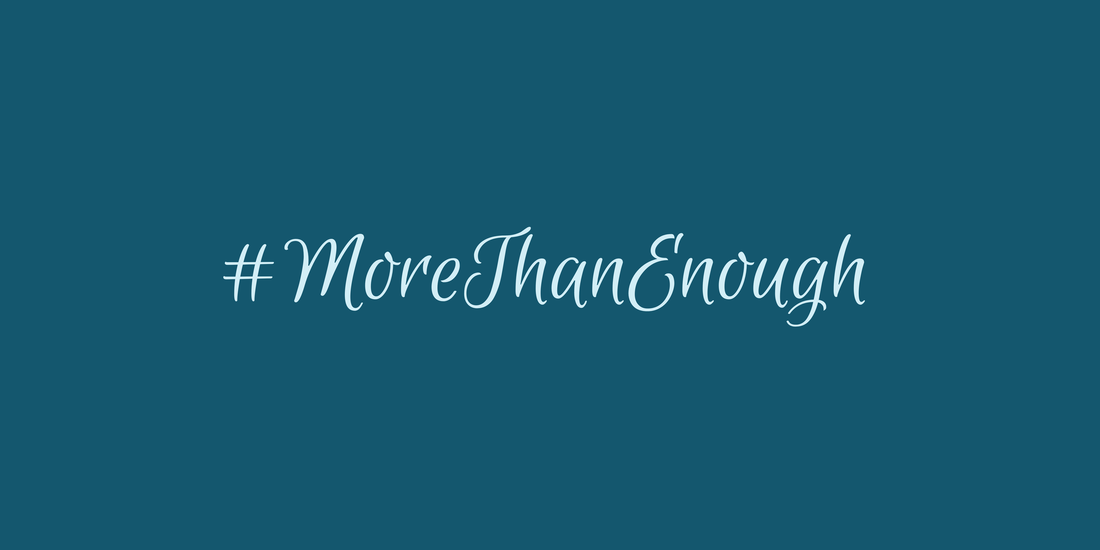|
In a powerful display of solidarity and community welfare, the R.J. Leonard Foundation proudly announces a financial gift from 100+ Women Who Care - Bucks County. This collaboration is celebrated with the R.J. Leonard Foundation being selected as the beneficiary of a generous $15,000 financial contribution from an wonderful organization entirely comprised of women. This partnership underscores a shared commitment to empowering young adults transitioning out of the foster care system.
This significant partnership was facilitated by the advocacy of Jo Leonard, who championed the foundation’s cause at a recent 100+ Women Who Care event. Her passion and dedication to supporting young adults aging out of foster care resonated deeply with the members, leading to this impactful contribution. Lynne Kelleher, Founder of 100 Women Who Care - Bucks County, shared her thoughts on the collaboration: "It's incredible what can happen when a group of amazing women put their hearts and resources together to help others in their community. What's even more amazing is that we do it in record time over a glass of wine, without the hassles of traditional fundraising! 100+ Women Who Care - Bucks County is thrilled to be able to support the RJ Leonard Foundation and the important, heartfelt work they do." "We are so grateful for the continued dedication of Jo Leonard, and all the women who are part of 100+ Women Who Care Bucks County," said Miles Hanley, Executive Director of the R. J. Leonard Foundation. "Inspiring women like them help support our mission of launching young adults from foster care to self-sufficiency.". Contact: R.J. Leonard Foundation Miles Hanley, Executive Director [email protected] 100+ Women Who Care Bucks County Lynne Kelleher, Founder [email protected] About R.J. Leonard Foundation The R.J. Leonard is a community funded nonprofit organization that provides a Fellowship program for young adults aging out of the foster care system. We aim to provide these at-risk youth with Education-First support that will give them the same opportunities as their more fortunate peers. About 100+ Women Who Care - Bucks County 100+ Women Who Care Bucks County was started in May of 2014 by local real estate expert Lynne Kelleher. She first became aware of the concept after attending 100+ Women Who Care Chester County’s quarterly meeting. The group has grown to over 250+ women and has donated hundreds of thousands of dollars to the Bucks County Community.
0 Comments
We are thrilled to announce significant changes at the R.J. Leonard Foundation. As we welcome new leadership, we also celebrate the ongoing contributions of our current members.
New Leadership:
Please join us in welcoming the following exceptional individuals to our board:
Jo Leonard, who has brilliantly served as a board member for over 15 years, now takes on the role of Board Advisor. In this capacity, Jo will continue to provide valuable guidance and wisdom, steering the foundation toward continued success. Our new board members officially began their roles in March 2024 and are already making significant contributions. They are committed to effective organizational planning, ensuring the foundation has the resources it needs, engaging with our community, attending key events, and overseeing our operations with the highest standards of integrity. These changes herald a new chapter for the R.J. Leonard Foundation as we continue to empower young adults to build successful, independent lives free from government assistance. For more information about our programs or to get involved, please contact the Executive Director at [email protected]. The concept of safe spaces can apply to any number of things, from workplaces to homes to tourist destinations.
For youth in foster care, a safe space means more than a roof over their head. It means finding a place where the adults and other household members not only welcome them but accept them. It means feeling able to express their wants and needs and knowing that making a mistake won’t result in another move, more new faces, less safety. Safe spaces are vital for youth in foster care (and, truly, for everyone) but they aren’t always plentiful. It is up to the grown-ups – the caseworkers, foster parents, teachers, and mentors – to help young people feel and be safe. It is up to people like you. This Foster Care Awareness Month contact your county or local nonprofit to find out how you can help create safe spaces for the youth in foster care in your community. You don’t have to be a foster parent or a teacher or a mentor. You can donate luggage, school supplies, hygiene kits, etc. so that youth don’t feel quite so out of place when they get to a new space. Every little bit counts. Not In My Backyard (NIMBY) is a phrase that typically describes a neighborhood’s objection to something they don’t want added to the area, such as low-income housing, shelters or group homes. It’s often a societal good that the residents support as long as it’s . . . elsewhere.
But I argue NIMBY could also apply to another neighborhood phenomenon: the blind eye. Many people assume that the hardest parts of society don’t happen in their backyard. Everything from crime to substance use to child abuse and neglect is thought to occur anywhere but where you are. Unfortunately, that’s just not true and hoping that your backyard isn’t home to something like child abuse means that you aren’t paying attention. You could miss someone in danger. There are children who have been abused and neglected in your neighborhood. There are children in foster care in your neighborhood. Don’t turn a blind eye. It’s your backyard. Recently, as a Fellow reflected on her personal to-do list, she mentioned a health concern – something that she had noticed but not acted on. It was the kind of issue that made her Mentor and RJLF staff sit up a little straighter, lean in and start asking pointed questions, even while the Fellow explained that it was the kind of thing she would typically ignore until she had no other choice.
Our concern was enough to convince the Fellow that this health issue needed to become a priority, regardless of the other items on her to-do list. It also gave the Fellow an opportunity to open up about her own concerns and fears. The Fellow has since made an appointment with her doctor, and we are all hopeful that the issue will turn out to be easily resolved. We – the Fellow’s Mentor and RJLF staff – have also taken from the situation an important reminder: Too often, individuals neglect their personal health in favor of the litany of other must-dos and needs on their plates. We assume that something is fine (or close enough) and can be attended to later. While that might work sometimes, there will inevitably come an issue that must be addressed – an issue where a delay could be dangerous. While we wish you all good health, we also encourage you to check in with your well-being today and every day hereafter. Don’t ignore your body. Take care of it. And talk about it, not just with your providers but with your support network. You never know what resources your friends and family may have, and you never know who may need to be reminded that their health is important, too. Be well. NAMI is marking 2023’s Mental Health Awareness month with the theme of More Than Enough.
So often, when individuals struggle with their mental health – whether depression, anxiety, PTSD, etc. – they withdraw. At RJLF, we see this often with our Fellows. They stop answering texts, miss meetings and share less and less, all because they don’t want to burden us with their struggles. It takes a great deal of sincere support to convince them that they are worthy of having – at the absolute least – someone they trust listen to them. And even when a Fellow knows in March that they can share and struggle and ask for help, to them it might not seem like they can again in May. Mental health can be cruel like that. It is important that all of us whether we struggle with mental health or not – but particularly individuals currently struggling – know that we are more than enough. We deserve love, support, and help no matter what. We are human. Take extra care this month to remind those around you that they are more than enough. Then tell yourself. You are #morethanenough. We talk a lot at the R.J. Leonard Foundation about goals – setting them, working toward them, achieving them. We ask all our Fellows from their first meeting on to be willing to progress toward education and career success. We encourage our Mentors to focus on these plans in one-on-one meetings. And we celebrate privately (at dinners, on calls, and over coffee) and publicly (in newsletters, blog and social media posts, and at our fundraisers) when our Fellows achieve their goals.
However, as important as these goals and making progress toward them are, they can’t always be the main focus for a Fellow. Our Fellows – like everyone else and in many ways even more so – face obstacles in their lives. They find unexpected challenges in the everyday, as they attempt to work toward the long and short-term goals they set. Whether it is a failed permit test, a lost job, an unexpectedly high utility bill, or a personal matter, there are times when our Fellows feel stuck. They must turn away from their long-term plan to address a, hopefully, short-term problem, and that pivot can make the ultimate goal feel impossibly far away. We may not always say it. It may not always feel true to them. But it is during those moments, when they must pivot, that we are especially proud of our Fellows. They do not give up. Yes, they feel frustrated and overwhelmed. They may even want to scrap their long-term goals. But they don’t. They find a way to overcome the obstacle in their path and, even as they brace for the next delay, even as they find themselves two steps farther away, they move forward. Progress and success don’t come in straight lines. Paths like these are never easy to follow. Our Fellows find a way, and we couldn’t be prouder. It can be hard to invest time, energy, money into something that doesn’t seem to affect you day to day. That’s why it’s easy to say no when they ask you to round up for a cause at the grocery store or to forget the sad SPCA commercial that ever so briefly struck a (Sarah McLachlan) chord. A willingness to invest in the future of someone or something requires all of us to look outside of ourselves to see the value, the importance.
That value exists in every community, population and individual. It’s why we give to organizations like the R.J. Leonard Foundation, for example. It also exists throughout the world in both the smallest and largest bits of nature. It exists in Earth itself. We may not notice in the day to day how humanity’s impact on our planet is affecting it and our well-being. Changes to the climate may seem more like blips in weather patterns, for instance. But the health of the Earth impacts each one of us every single day. We must recognize that and take the action we need to invest in our planet. After all, investing in Earth is investing in our future. This Earth Day, find out how you can help on April 22nd and every day after. Look for organizations locally and throughout the world that are working to make a difference. Then make your own changes at home. Compost, garden, buy less plastic, use fewer or reusable straws. Take the time, energy and money that you have to change the world – now and in the future. We are a few weeks into spring (though it recently felt like summer). The days are getting longer, the flowers and trees are blooming and we are shedding the last chills of winter. As we do so, we begin to make more plans - maybe just weekend plans but more likely, we are preparing our kids for sports and summer camp. We are thinking about the repairs the house needs, the purchases we put off because of the holidays, and fun adventures ahead. The same is true of our Fellows, as they look toward summer classes and fall semesters, new jobs, summer camps, kids’ growth spurts and more. But what is so often different for our Fellows is the ability to afford those plans, to make those moves. Tuition may be covered but room and board is not. Summer camp may come with scholarships but do those scholarships cover before and after care? And who can really afford yet another pair of shoes for their ever-growing child?
At the R.J. Leonard Foundation we work with our community partners to help our Fellows see through their plans and reach their goals, not just for the summer but for the years ahead. Be a part of that. Donate at rjleonardfoundation.org or email [email protected] to find out how you can get involved. Imagine being taken from your home. Even when that home is abusive or neglectful, it’s traumatic. Imagine being moved from placement to placement, group home to foster home to shelter, as so many older youth are. It’s disruptive, nearly impossible to create routine and feel safe and stable. Now imagine being a young person who experiences the world a little or a lot differently while experiencing foster care. Imagine being a young person living with autism. How much harder must it be?
Children living with autism are 2.4 times more likely to be in foster care when compared to their neurotypical peers. They deserve the services, resources and professionals they need to help them best manage. While those within the child welfare system try, they often fall short for a variety of reasons. The best way to improve the services available to children in care with autism is to raise awareness and acceptance - your own and the community’s - about what autism is and who the children on every segment of the spectrum are. Learn, share, learn some more. |
Categories
All
Archives
July 2024
|
|
1097 Street Road
New Hope, PA 18938 |






 RSS Feed
RSS Feed
